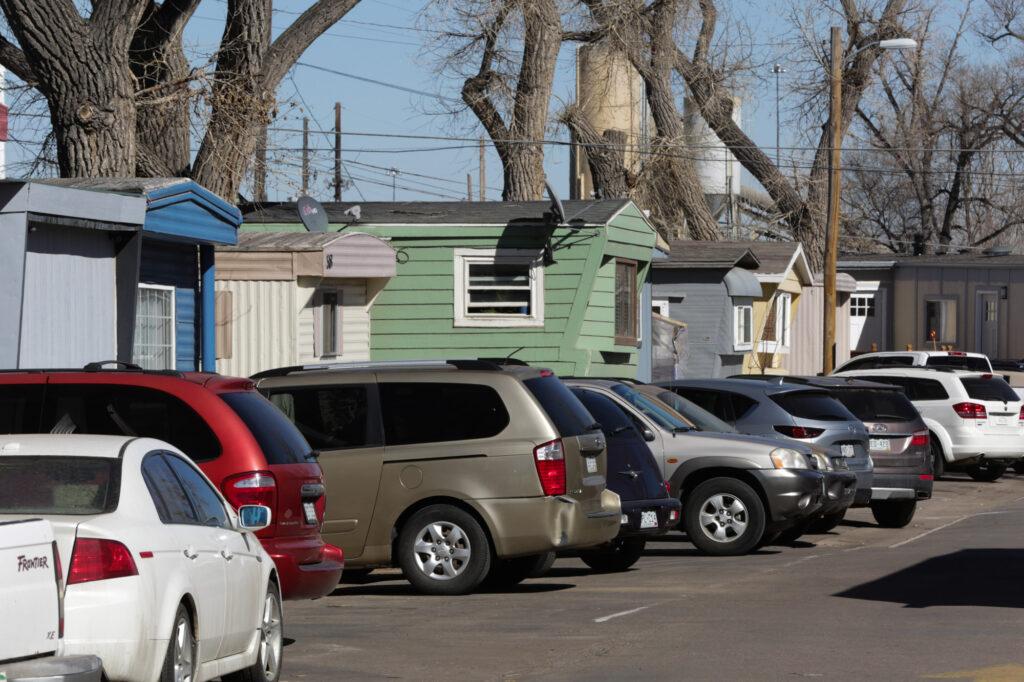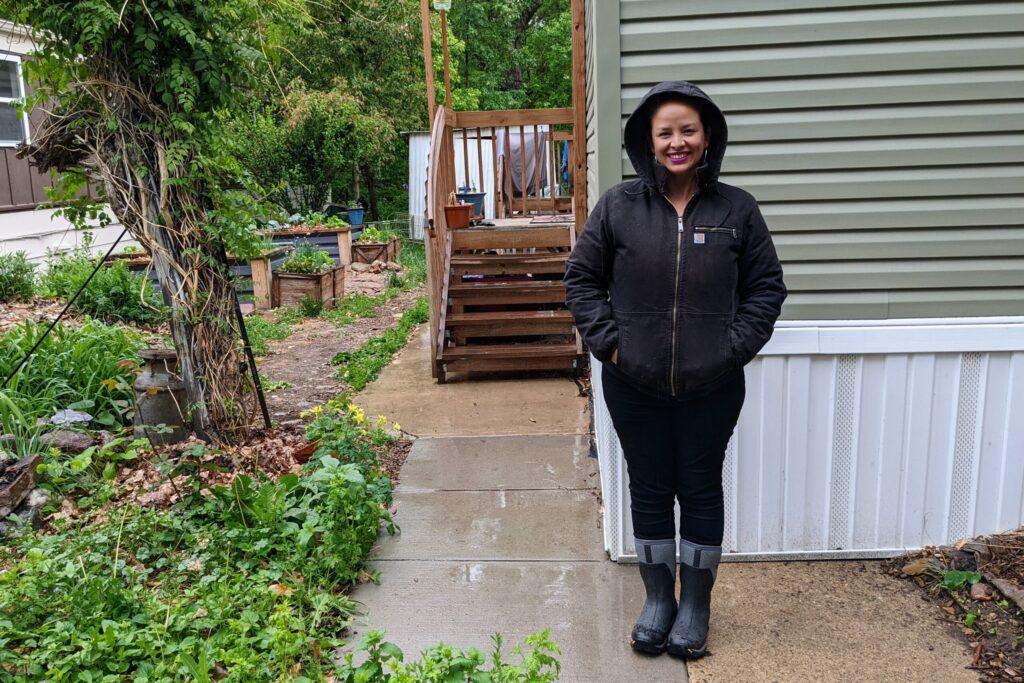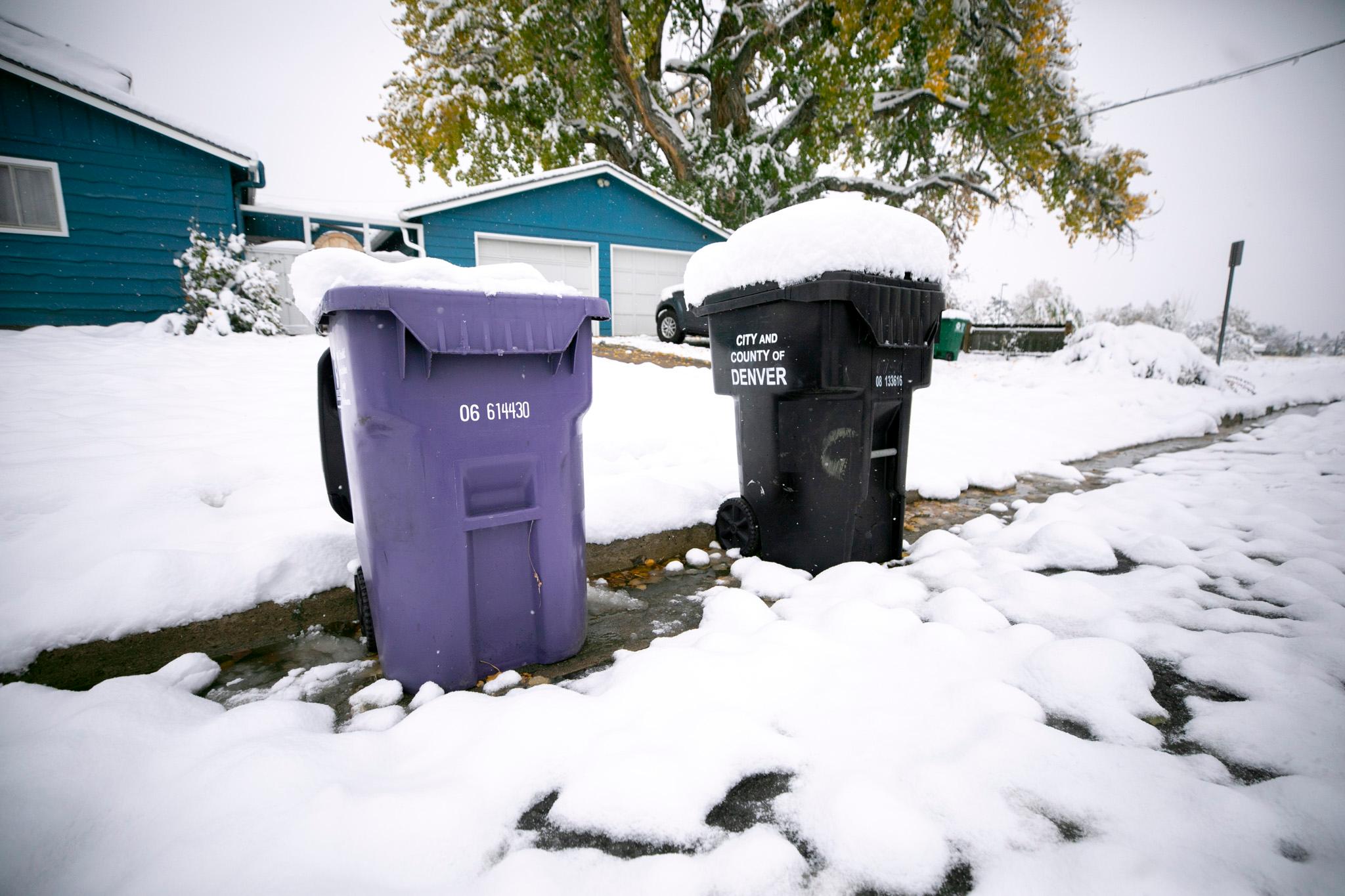
Angela Maria Ortiz Roa loves almost everything about her single-wide manufactured home in Boulder's Mapleton Mobile Home Park.
The community offers a rare option for affordable homeownership in the heart of the city. After moving in months before the start of the COVID-19 pandemic, Ortiz Roa now has space for bongos and keyboards she plays with her son. A dog named Poma has joined the family. A corner in the living room is packed with potted house plants, which she fertilizes with compost from a bin full of worms in her kitchen.
Oritz Roa, who works in communications and climate justice for the City of Boulder, said energy prices are one of the few downsides of her unit. While she tries to keep her thermostat low in the winter, Roa said her bills often top $100 a month due to drafts and a lack of insulation. Those costs climbed higher this year amid rising energy prices.
"When you walk bare feet in the winter, you can feel gaps in the lining at the bottom where the floor gets cold," Roa said.
Many owners of manufactured homes face similar struggles. Data from the U.S. Energy Information Administration show mobile homes use about 35 percent more energy per square foot than single-family homes. A Colorado study shows the additional energy costs mean mobile home residents — who tend to be lower or middle-income — see significant portions of their paychecks lost to high energy bills each month.
Last month, the federal government took a long-awaited step to help address the issue. Following a lawsuit from the Sierra Club, the U.S. Department of Energy adopted new energy efficiency rules designed to protect future manufactured homebuyers from unnecessary energy costs, marking the first update of the rules in more than 25 years. The agency claims the requirements will slash greenhouse gas emissions and help future manufactured home residents save hundreds of dollars a year on utility bills.
But the move has fueled a debate about the best way to protect affordability amid rising energy prices and a nationwide housing crisis. Manufactured homebuilders warn that tougher rules could increase the upfront cost of homes.

Why Washington, D.C., is setting building codes
For traditional "stick-built" homes, conflicts over energy-efficiency standards tend to play out in local communities, not the highest level of the federal government.
Boulder County has been a hotbed of those debates since the Marshall fire, which destroyed more than 1,100 homes late last year. Many victims objected to tough green building codes in Louisville and Superior, which each ended up allowing families to rebuild to looser standards.
Since manufactured homes often cross state lines on truck beds, the federal government has been the primary authority overseeing their construction standards for decades. The U.S. Department of Housing and Urban Development last set energy efficiency standards in 1994. Congress passed a 2007 law calling on the Department of Energy for an update, but a series of bureaucratic hangups and political negotiations left the issue unsettled until this year.
The final rules created different standards for single- and multi-section homes, setting looser requirements for the smaller units. U.S. Energy Secretary Jennifer Granholm said the separate policy approach is designed to ensure the cheapest manufactured units stay affordable.
"We are recognizing the upfront purchase price is important as well, so we wanted to strike a balance," Granholm said at a recent visit to the National Renewable Energy Laboratory in Colorado.

Energy-efficiency advocates and home builders object
The final standards disappointed energy efficiency advocates. Lowell Ungar, the director of federal policy for the American Council for an Energy Efficient Economy, said the 2022 update is an improvement but thinks the government could have gone further without significantly increasing home prices.
"We think that the Biden administration missed an opportunity here," Ungar said.
"They've barely changed the standards for smaller homes and we fear that the residents of those homes are going to be paying high energy bills for decades to come."
The new rules have drawn further fire from the manufactured housing industry, which has argued the policy will increase upfront housing costs. In an opinion piece published in Housing Wire, Lesli Gooch, CEO of the Manufactured Housing Institute, argued the federal housing agency should get the final say in how the rules are implemented. Her group plans to push HUD to enforce standards in line with recommendations from the industry.
U.S. Rep. David Kustoff, R-Tennessee, has submitted a bill in Congress to give HUD the final review based on an assessment of increased home prices.
The Department of Energy estimates that the new rules will increase the sale price of multi-section manufactured homes by 3.9 percent and single-section models by 1.2 percent. For buyers of the smaller homes, it estimates energy savings will cover the additional cost of a down payment for a loan within 10 months.
Alongside the new requirements, the agency announced a separate initiative to pursue financial programs to make manufactured homes more accessible. It has commitments from six states to help with the effort, including Colorado. Will Toor, executive director of the Colorado Energy Office, said it's too early to predict the final result of the initiative.
For Angela Maria Ortiz Roa, the Boulder mobile home resident, those kinds of efforts are essential. Too often, she thinks climate change policies come at the cost of low-income people trying to improve their lives.
"It's one thing or the other. Like we find a home that we can afford, or we care too much about the planet," she said. "It's always at this divide instead of allowing people to have both."
She isn't sure what answer makes the most sense but thinks the goal should be clear: people need cheaper homes that don't doom residents to decades of high energy costs.








